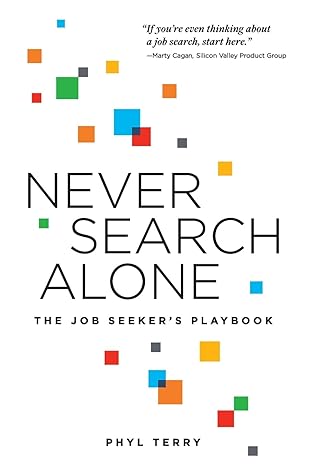Finding a job can be a daunting task, especially for mid to senior level managers who are looking for new opportunities. The job market can be highly competitive, and it may seem like finding a job is simply a matter of luck. However, the truth is that there is a method to this madness. In this blog, we will explore the common misconceptions about finding a job, and provide practical solutions that mid to senior level managers can use to take control of their job search.
Bullet Points of the Problem:
– Highly Competitive Job Market: The job market is highly competitive, with many qualified candidates vying for a limited number of positions. This makes it difficult for mid to senior level managers to stand out and secure new opportunities.
– Lack of Networking: Networking is crucial for finding job opportunities, yet many professionals overlook it. Without a strong network, it’s harder to learn about job openings and get referrals.
– Ineffective Use of LinkedIn: LinkedIn is a powerful tool for job seekers, but many professionals fail to use it effectively. Without an optimized profile and a strong network, job opportunities may be missed.
– Generic Resumes and Cover Letters: Mid to senior level managers need to customize their resumes and cover letters to align with specific job openings. Generic documents can make it difficult for hiring managers to see how a candidate’s experience and skills match their requirements.
– Inconsistent Job Search Efforts: Some job seekers are not consistent in their job search efforts, leading to missed opportunities and a longer job search process.
– Discouragement and Lack of Motivation: The job search process can be frustrating, leading to a lack of motivation and discouragement.
Solutions:
1. Focus on Networking:
Networking is one of the most effective ways to find a job. Attend industry events, connect with other professionals in your field, and join relevant online groups. Build relationships with people who can refer you to new opportunities and keep you in the loop about potential job openings. Make sure to follow up and stay in touch with your network regularly.
2. Use LinkedIn Effectively:
LinkedIn is a powerful tool for job seekers. Optimize your profile to highlight your skills and experience, and connect with recruiters and other professionals in your field. Join relevant groups and engage in conversations to build your network and increase your visibility. Share relevant content and engage in discussions to position yourself as an expert in your field.
3. Tailor Your Resume and Cover Letter:
Customize your resume and cover letter for each job you apply for. Highlight your relevant skills and experience, and use keywords that align with the job description. This will help your application stand out and show that you are a strong candidate for the position. Use specific examples to showcase your achievements and skills.
4. Be Proactive:
Don’t wait for job openings to come to you. Instead, take a proactive approach and reach out to companies and recruiters that interest you. Let them know about your skills and experience, and ask if there are any opportunities available or coming up that would be a good fit for you. Build a targeted list of companies and hiring managers and send personalized emails and LinkedIn messages.
5. Stay Positive and Persistent:
Finding a job can be a long and challenging process, but it’s important to stay positive and persistent. Don’t get discouraged by rejection or setbacks, and keep putting yourself out there. Celebrate small wins and take breaks when needed to avoid burnout. Develop a support system and seek help if needed.
6. Focus on Professional Development:
Invest in your professional development by taking courses, attending industry events, and staying up to date on trends and developments in your field. This will help you stay competitive and increase your chances of finding new opportunities.
Conclusion:
In conclusion, finding a job is not just about luck. While luck may play a small role, there are specific methods and strategies that mid to senior level managers can use to increase their chances of finding new opportunities. By focusing on networking, using LinkedIn effectively, tailoring their resumes and cover letters, being proactive, staying positive and persistent, and investing in professional development, job seekers can take control of their job search and increase their chances of success.
It’s important to remember that the job search process can be challenging and may take time. But by implementing the solutions outlined in this blog, mid to senior level managers can stay competitive, increase their visibility, and ultimately find new opportunities that align with their career goals.
So if you’re a mid to senior level manager who’s struggling to find a job, don’t give up hope. Instead, take a proactive approach, focus on building your network, and invest in your professional development. By doing so, you’ll increase your chances of success and find the right opportunity that fits your skills, experience, and goals.
#jobsearch #careergoals #professionaldevelopment #networking #LinkedIn #resume #coverletter #careeradvice #jobhunting #jobseekers #seniorleveljobs #midleveljobs #jobsearchtips #jobseekerstruggles #jobmarket #jobsearchsuccess #jobseekersupport #recruitmentindustry
- Check out our other posts:
- Should You Remove Old Work Experience From Your Resume? A Comprehensive Guide for Mid to Senior Level Managers
- Boost Your Chances of Getting Hired: 9 Simple Tips to Improve Your Resume
- The Reason You’re Getting Ghosted by Companies After Sending Your Resume, That No One Is Talking About.




Pingback: The Reason You’re Getting Ghosted by Companies After Sending Your Resume, That No One Is Talking About. - Career Crafter